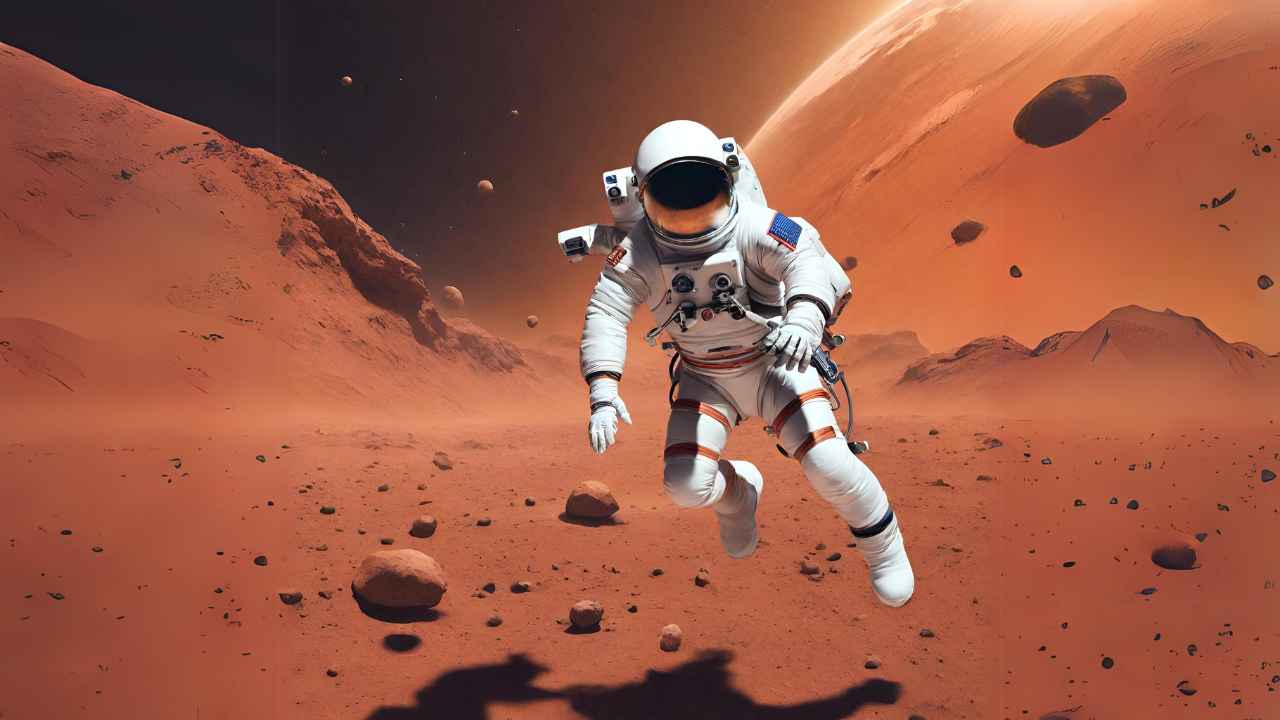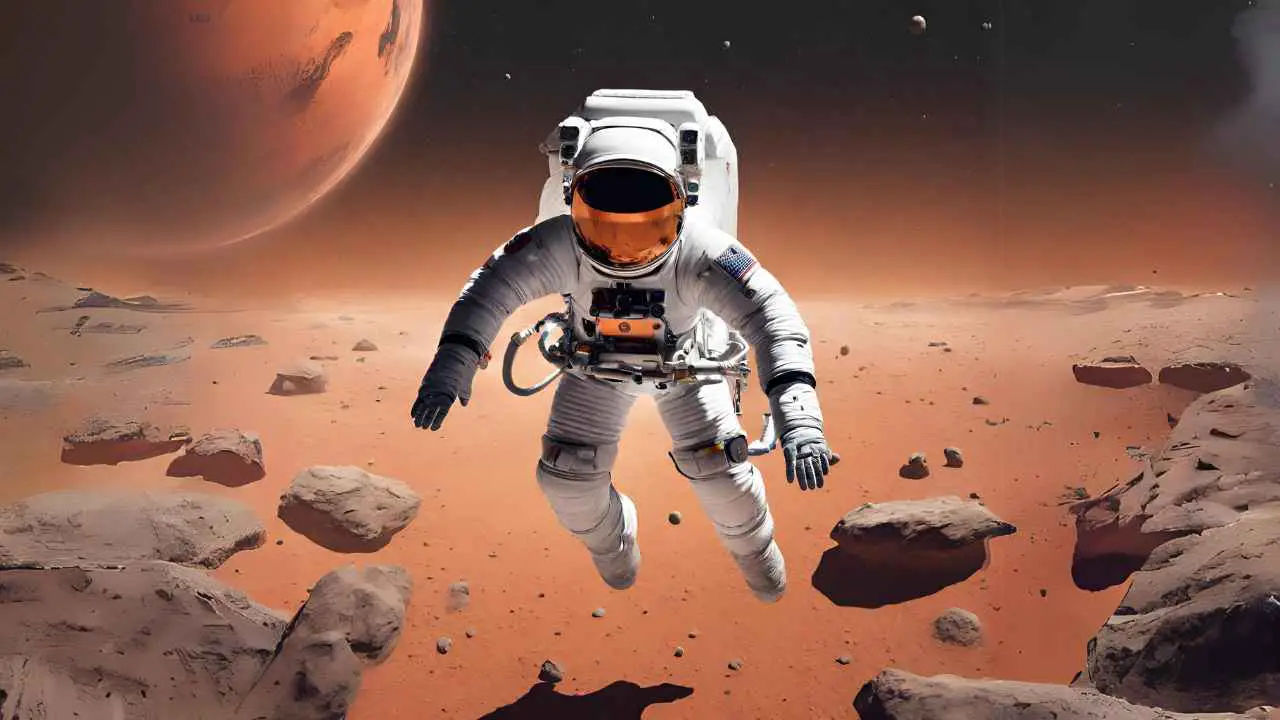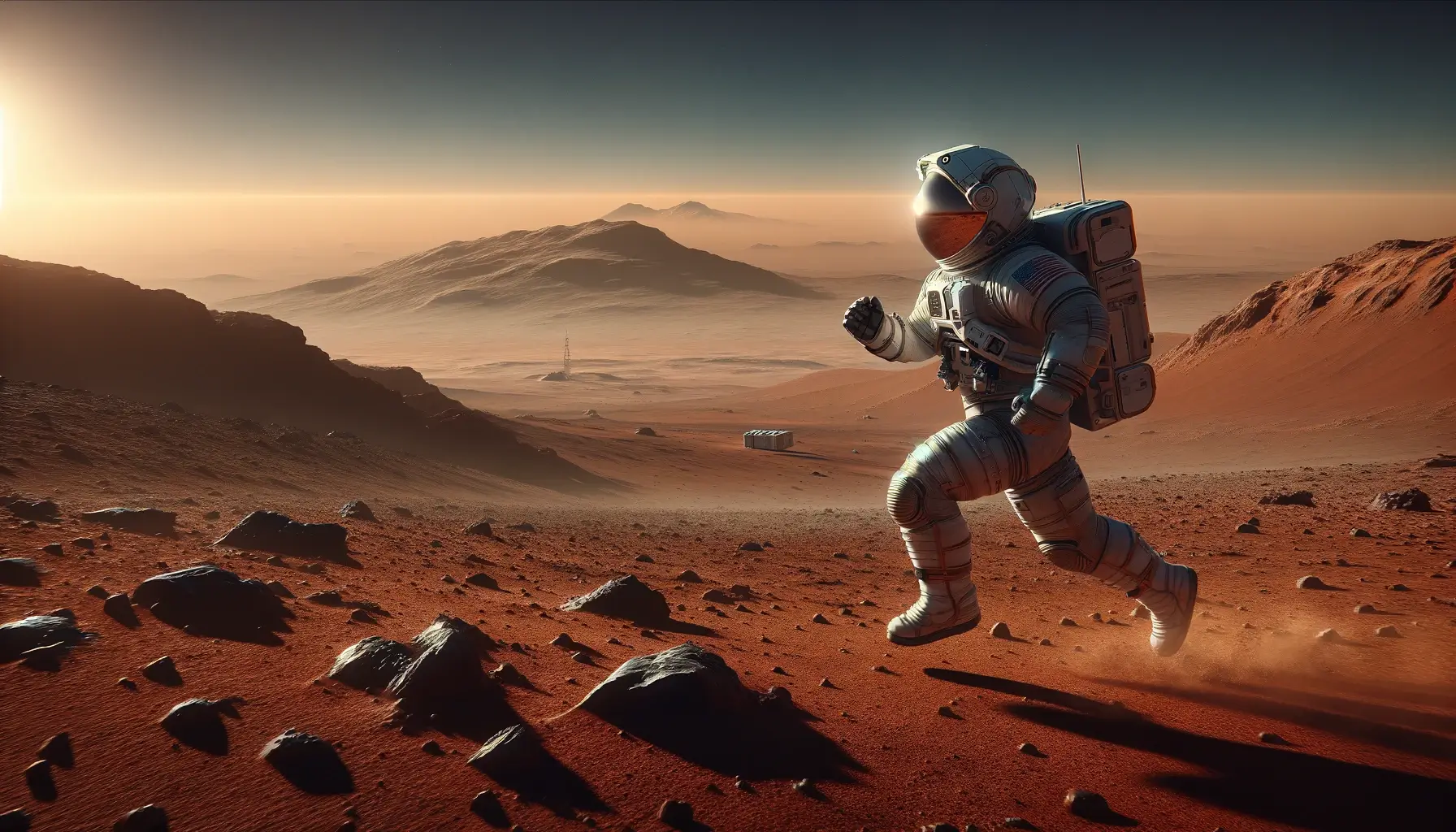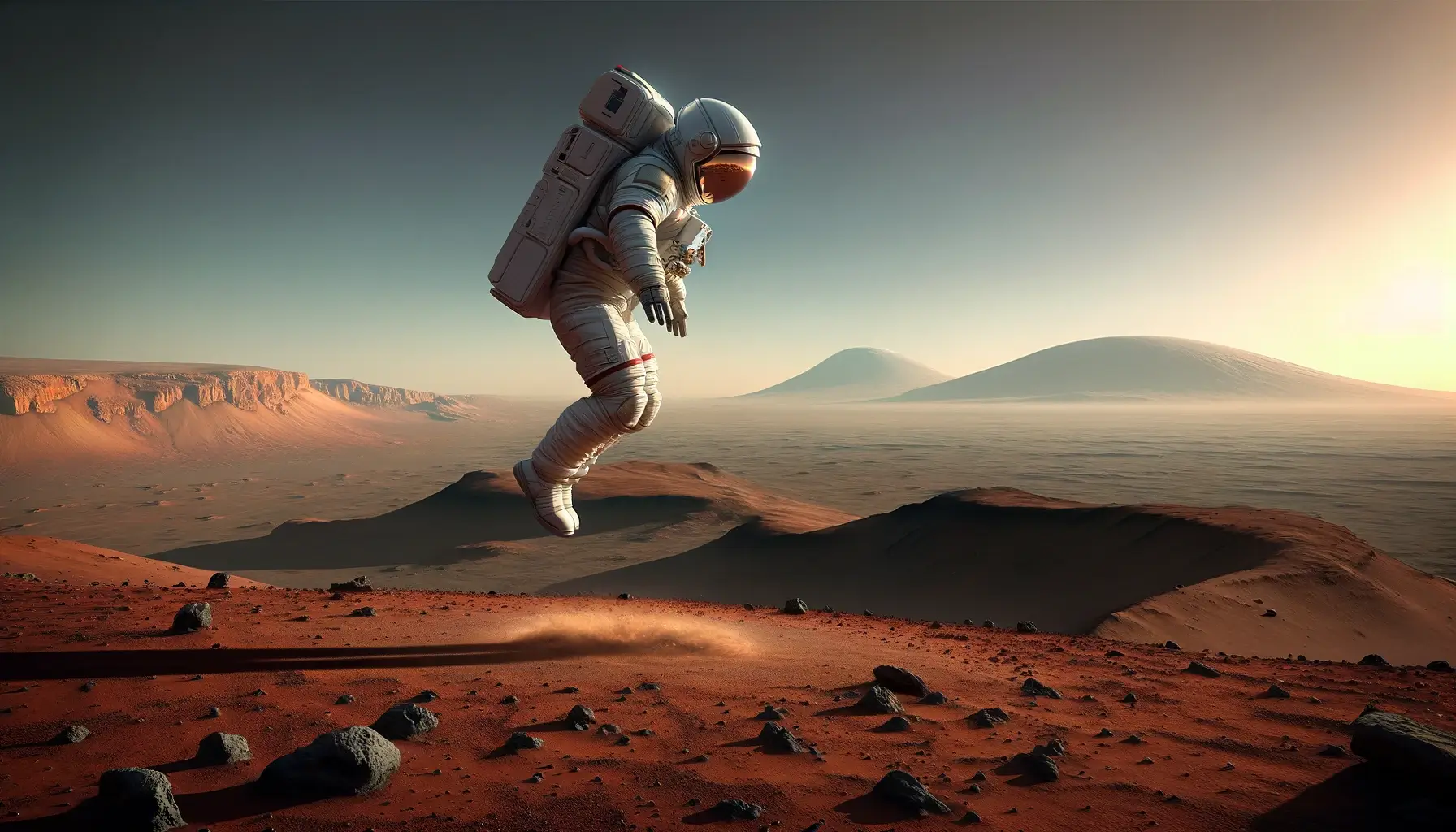Mars is the fourth nearest planet to the sun in our solar system. It is a small planet with a volume of only about 15% and a mass of only 11% of our Earth’s. Because of its small volume and mass, it has only about 38% of the Earth’s gravity. Here, we gathered information about how strong is gravity on mars, and how martian gravity was calculated, comparison of Mars gravity with Earth, and other planets.
How Strong Is Gravity On Mars?

Gravity on Mars is not strong like that of the earth’s gravity. It is 3.72 m/s², which makes up only about 38% of the earth’s gravity.Gravity is an attractive force through which planets attract objects towards its center. A planet with smaller mass and density would have a lower surface gravity than a planet with a greater mass and density. That is why the surface gravity of Mars is not strong like the gravity of our planet Earth. Gravity is the actual force that keeps all planets in their respective orbits around the sun.
Also Read: How do we generate oxygen on mars?
The Martian gravity is 0.372g (or 3.72 m/s²), which is much lower than the 0.98g (or 9.8 m/s² ). So the question arises why is gravity on Mars so lower than our Earth’s. It is because Mars is a small planet and has a lower mass, radius, and density that contributes to the gravity strength. At the equator region, its diameter is around half of the Earth’s diameter. Its volume is only about 15% of Earth’s volume. Besides smaller size, Mars is also less dense than our planet Earth and its mass is equal to only 11% of the Earth’s mass (while its volume makes about 15% of Earth’s volume). All these features contribute to the low gravitational pull of the Mars surface than our Earth.
Can Humans Walk on Mars?
Yes, humans can potentially walk on Mars, but there is a challenge of gravity difference. Mars has a gravity that is about one-third of Earth’s gravity. This difference in gravity would affect how humans walk on Mars. Studies have shown that the ideal walking speed on Mars would be only a little more than earth. However, astronauts would spend only half as much energy to move an object on Mars compared to Earth.
How Was Martian Gravity Calculated?
Scientists calculated the gravity of Mars (also called Martian gravity) on the basis of Newton’s Law of Universal Gravitation, which states that the gravitational force an object exert is directly proportional to the mass of that object and inversely proportional to the square of its radius. These proportionals can be simply expressed by the formula:
g= m/r²
In this formula, “g” is the surface gravity, “m” is mass, and “r” is the radius. When the above formula is applied on Mars; the mass of Mars is 6.4171 x 10²³, which is 0.107 times the Earth’s mass. The mean radius of Mars is 3,389.5 km, which is calculated as 0.532 of the Earth’s radii. Mathematically, the gravity of Mars will be therefore calculated as:
g = 0.107 / (0.532)²
g = 0.376
Based on the surface gravity of Earth, this works out to:
🔬 Subscribe to SciMail
Get the latest science discoveries straight to your inbox!
g = 9.8 ☓ 0.376
g = 3.72 m/s²
How Strong Is Gravity On Mars Compared To Earth
The average gravitational acceleration on Mars is 3.72076 m/s², which is 62% lower than the 9.8 m/s² gravity of Earth. It means a thing of 100 pounds mass on Earth would have only 38 pounds mass on Mars. If a person jumps on the Mars surface, it would be 2.6 times higher than on Earth.
Mars is a smaller planet and has a much lower volume, weight and density than our Earth. All these factors contribute to the gravitational strength of a planet. That is why Mars has a lower gravity than our Earth.
Mars Gravity Comparison To Other Planets And Moons
In the following table, the gravity of Mars is compared with the gravity of other planets, sun, and moons:
| S.No | Planet OR Moon Name | Gravity |
| 1 | Mars | 3.72 m/s² |
| 2 | Earth | 9.8 m/s² |
| 3 | Mercury | 3.7 m/s² |
| 4 | Venus | 8.87 m/s² |
| 5 | Jupiter | 24.79 m/s² |
| 6 | Saturn | 10.44 m/s² |
| 7 | Uranus | 8.87 m/s² |
| 8 | Neptune | 11.15 m/s² |
| 9 | Pluto | 0.62 m/s² |
| 10 | Sun | 274 m/s² |
| 11 | Earth’s moon | 1.62 m/s² |
| 12 | Io or Jupiter Ⅰ (Jupiter’s Galilean moon) | 1.796 m/s² |
| 13 | Europa or Jupiter Ⅱ (Jupiter’s Galilean moon) | 1.315 m/s² |
| 14 | Ganymede or Jupiter Ⅲ (Jupiter’s Galilean moon) | 1.428 m/s² |
| 15 | Callisto or Jupiter Ⅳ (Jupiter’s Galilean moon) | 1.326 m/s² |
Is Mars Gravity Enough For Humans?
Mars gravity is 62% lower than our Earth’s gravity, which means a person of 180 lbs weight would weigh only 68 lbs on Mars. Living in such a low gravity environment would possibly cause considerable damage to human health in the long term. It is also possible that it has a negative influence on human fertility.
Another issue is that if a human adapts to Mars gravity, then it would be extremely hard for him to go back on the Earth (if he wants). Probably, his bones would be weaker and could break when exposed to 2.6 times stronger gravity than Mars. Or maybe, he would adapt and survive. It is an enigma because no one has passed through it.
Can You Walk On Mars Gravity?

Mars has a lower gravity of 0.38g, which is about one-third of the Earth’s gravity. The European Space Agency performed an experiment in which Martian gravity was artificially created in an up and down flying aircraft and volunteers were offered to walk on the force-monitoring platforms. The results revealed that the ideal walking speed on Martian surface will be slightly higher than half of average terrestrial walking speed on Earth. Even though explorers on Mars would walk slower than their average walking speed on the Earth, their energy expenditure to move an object on Mars will be only half.




Leave a Reply